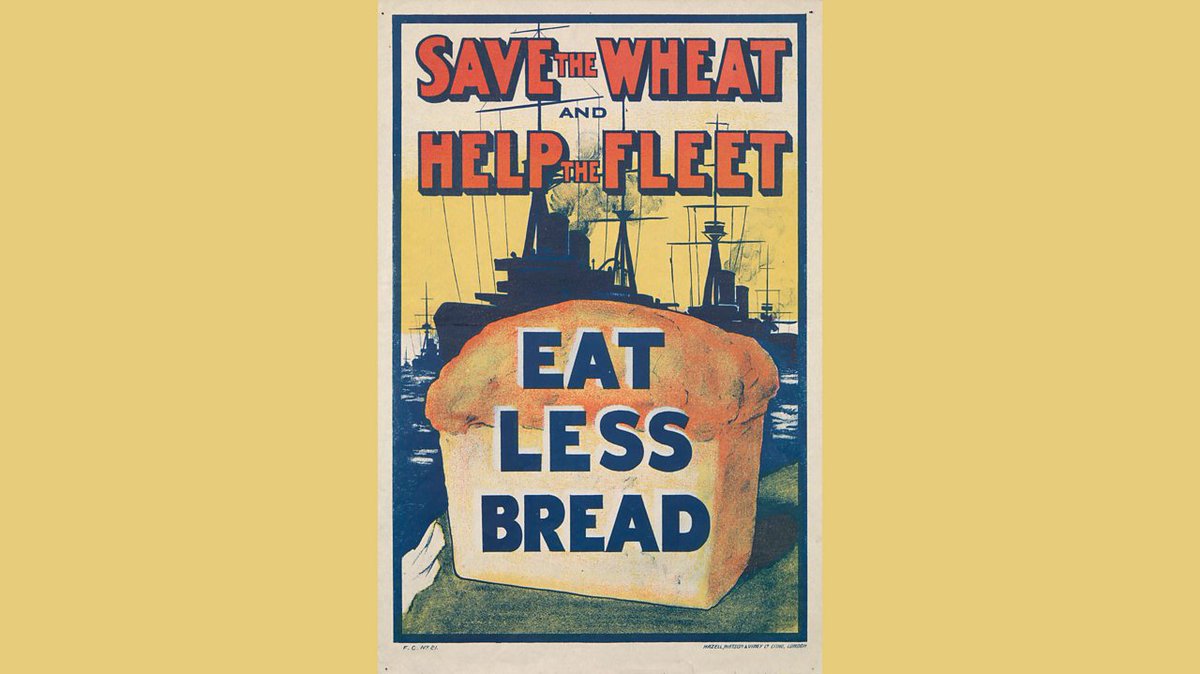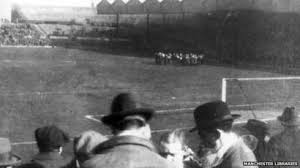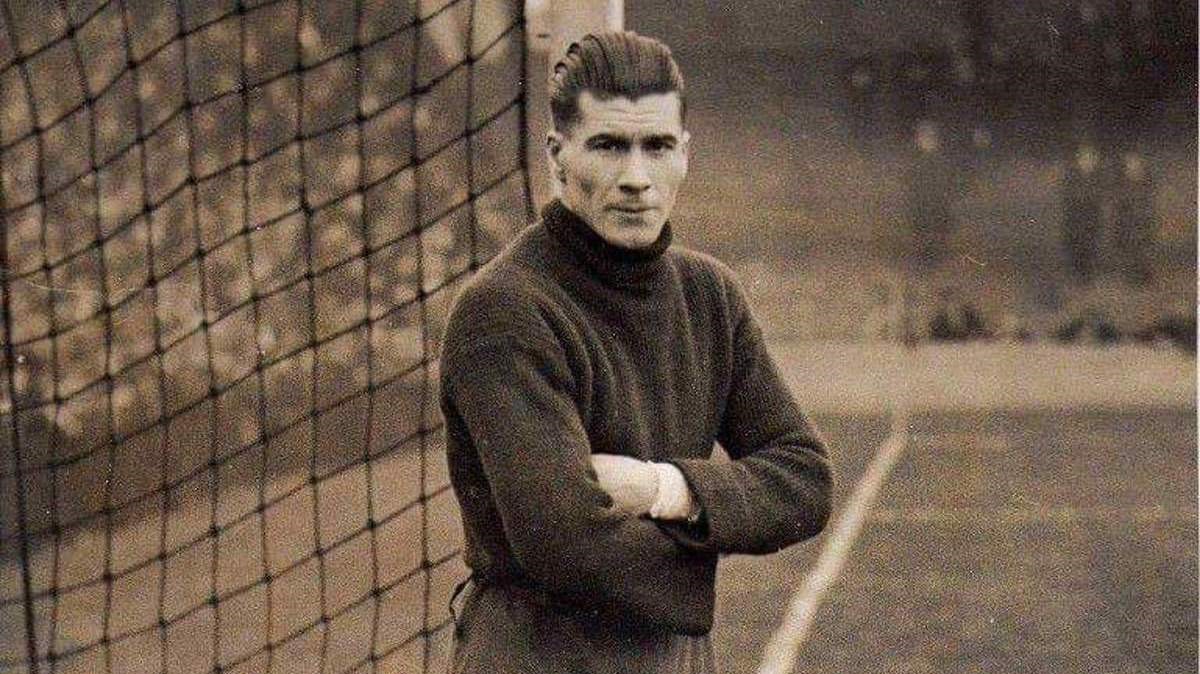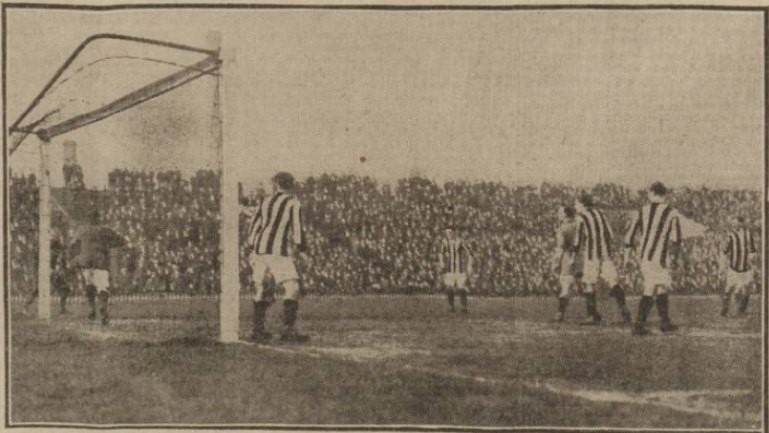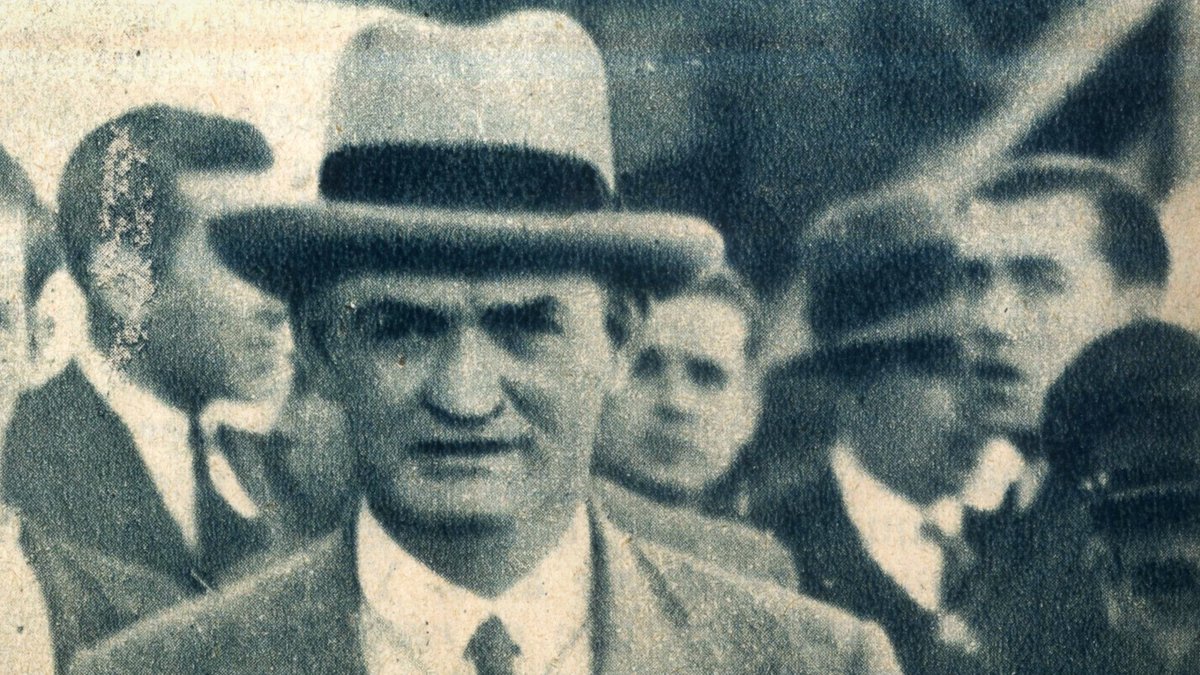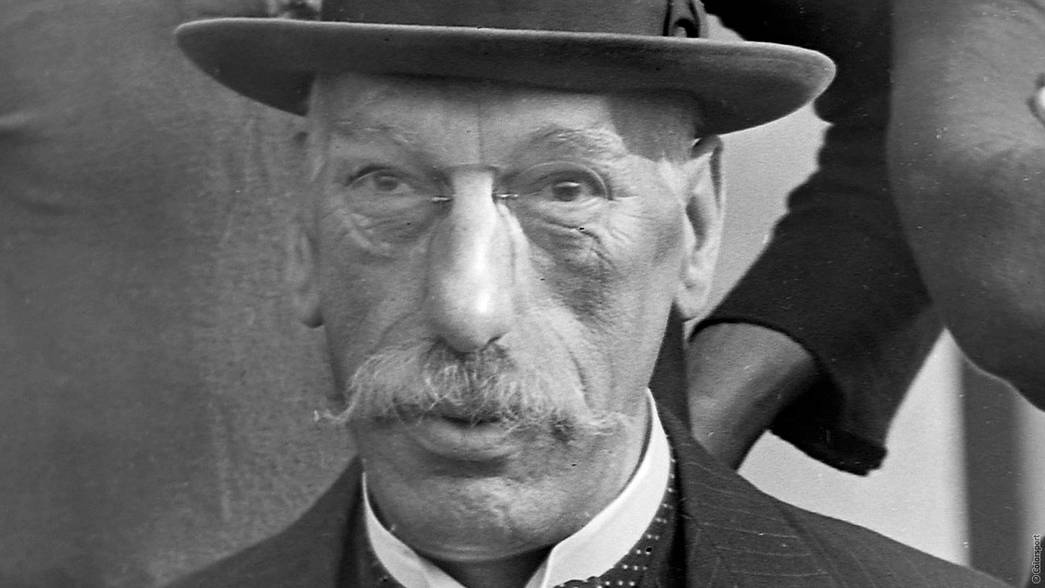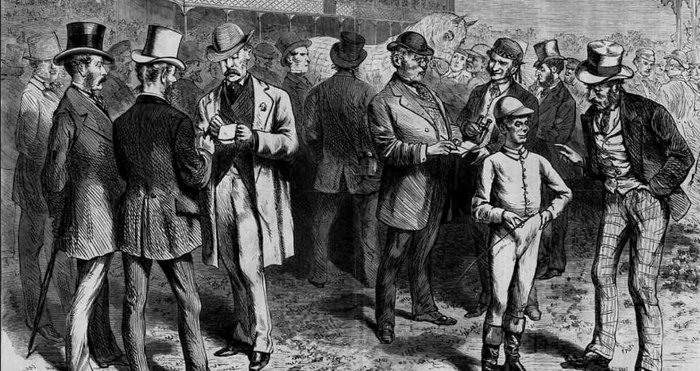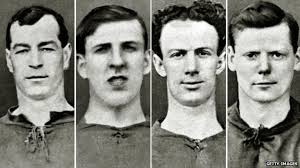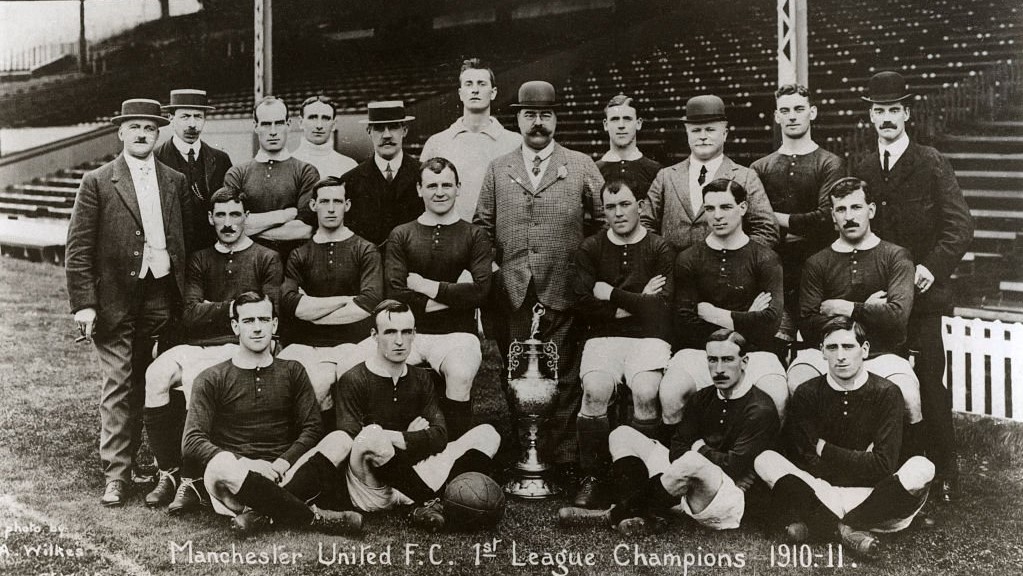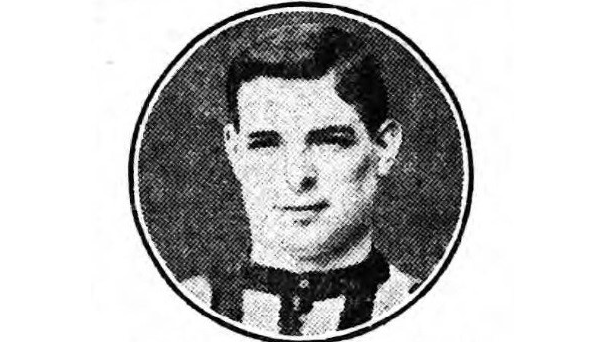The Good Friday Scandal - the most infamous game in English football history.
#PausaHistoria [THREAD]
#PausaHistoria [THREAD]
April 2, 1915 – Bottom placed Manchester United host 14th placed Liverpool in gameweek 33 of the 27th edition of the English first division. The events that would transpire over the next 90 mins would end up being the biggest scandal English football has ever seen.
The time was that of a turmoil. UK had been in a war for over an year that seemed to be nowhere near its end. Some footballers had enlisted for the war, many didn’t. Politicians across the country bemoaned these players for contributing to a German victory.
It looked like this would be the last season of football for a good amount of time. And should football return, many of its players won’t be able to play again. Against this backdrop, the game took place on a Good Friday. A sizeable crowd of 18000 had filled up Old Trafford.
The match began with heavy showers which soon subsided. LFC’s 20 yr old keeper Elisha Scott then found himself facing a barrage of shots for the entire half. His persistence finally gave up close to HT as Man United went into the break leading 1-0.
What followed was a state of absolute confusion within the Liverpool dressing room. Two groups emerged, with one accusing the other of not even attempting to play the game properly. In a state of utter chaos, the team came out to play the 2nd half.
However, the second half ended up being a complete borefest, with some Man Utd passing the ball in their own half while a good chunk of Liverpool players chose to do nothing. Midway through the half, a rare run in the box earned Man Utd a penalty.
George Anderson, Utd’s normal penalty-taker, stood aside to let the team’s captain, Patrick O’Connell (future Barcelona manager), take the kick. He blazed his shot so wide that the contemporary reports suggest the ball ended up closer to the corner flag than the goalpost.
The crowd understood what was going on and abuses were dished from the stands. The match had turned into a complete farce thereon as LFC showed no intent to attack despite being 2-0 down. John Robson, Man Utd’s manager was so appalled he left the ground before the final whistle.
The Sporting Chronicle described it as “There is almost as much about this Manchester v Liverpool match as there was about the Liverpool v Chelsea match of a year or two ago.” This was in reference to the game between Liverpool and Chelsea in March 1913, a game Chelsea won 2-1.
That win had kept the London club from being relegated towards the end. Henry Norris, Arsenal’s chairman had gone to the match and accused Liverpool of never really wanting to play the game. The FA were alerted, but their enquiry failed to land any convictions.
On 20 April, it was announced that league football would be suspended until the war was over. A few days later, the Football League established a three-man commission to investigate the Good Friday game. The next league season would only commence in 1919.
During the investigation, it emerged players from each side had fixed it so that Man United would win, with a goal to be scored in each half. Bets were placed on a 2-0 score-line around England at odds of seven and eight to one.
The verdict arrived on 23 December, 1915. Four players from each side (Liverpool ones in the pic) received life bans from football. Along with them Lancashire’s first class cricketer Lawrence Cook and Manchester City’s Fred Howard were also banned for helping arrange this deal.
Of the four from Liverpool, Jackie Sheldon, who was identified as the ringleader, had won a championship medal with Manchester United in 1911, a spell in which he had formed friendships with the three banned Red Devils — Arthur Whalley, Sandy Turnbull and Enoch West.
While the other players accepted their punishments, West was infuriated and sought to challenge the FA in the Court of Law. The case dragged on till 1919, where his challenge was dismissed and his ban upheld.
In recognition of their army service, Liverpool’s four banned players, including Sheldon, were allowed to apologise for their misdemeanour and all but Thomas Fairfoul renewed their professional football careers at Anfield.
West could have also been pardoned, but his insistence to clear his name and filing a case in court cost him that opportunity. He died in 1965, but never stepped foot on Old Trafford ever again.
[END OF THREAD]
[END OF THREAD]
To read more about this, we would recommend reading the detailed version of this story written by @Richard_Fitz for @blzzrd
https://www.theblizzard.co.uk/article/silenced-crowd">https://www.theblizzard.co.uk/article/s...
https://www.theblizzard.co.uk/article/silenced-crowd">https://www.theblizzard.co.uk/article/s...

 Read on Twitter
Read on Twitter![The Good Friday Scandal - the most infamous game in English football history. #PausaHistoria [THREAD] The Good Friday Scandal - the most infamous game in English football history. #PausaHistoria [THREAD]](https://pbs.twimg.com/media/EgawwGOU0AA1c4h.png)
